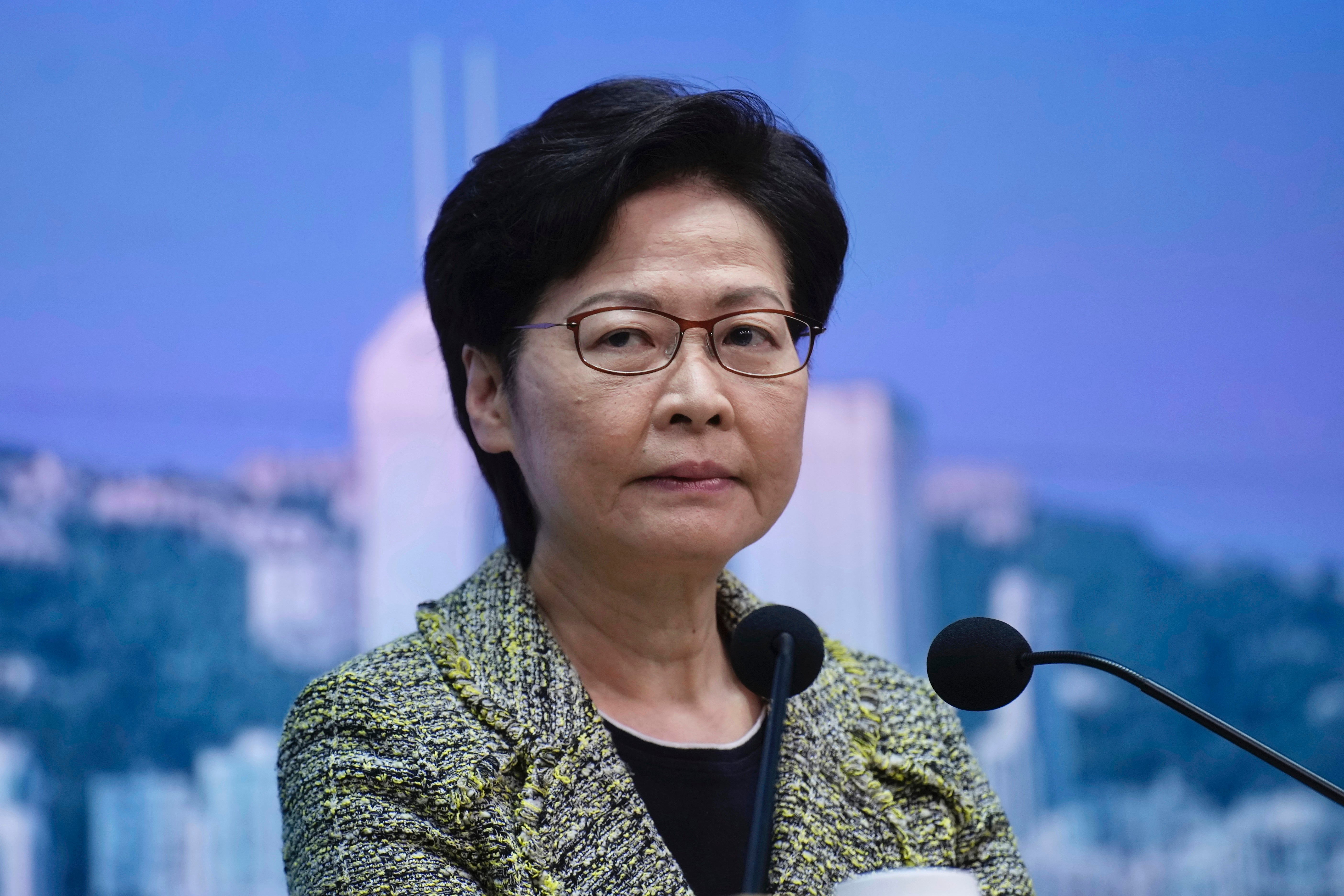Hong Kong leader: Groups crossing 'red lines' should disband
Hong Kong’s leader Carrie Lam says organizations that cross “red lines” and disregard national security should disband, though that wouldn't protect them if they are found to break the law

Hong Kong’s leader Carrie Lam said Tuesday organizations that cross “red lines” and disregard national security should disband and the government would not hesitate to cut ties with professional groups that turn political.
Authorities are conducting an ongoing crackdown on dissent in the city, arresting pro-democracy leaders and activists as Beijing seeks to keep Hong Kong in line after months of mass anti-government protests in 2019.
Lam made her comments after the Civil Human Rights Front, known for organizing annual July 1 protests and a key organizer of some of the biggest protests in 2019, said Sunday it could no longer operate due to the imprisonment of its convenor Figo Chan and a loss of members.
Its dissolution also came as Hong Kong police were reportedly investigating the group for breaking the law, with a police commissioner saying in an interview with local media that the group had not formally registered with the government.
Critics of Hong Kong’s security legislation say it rolls back freedoms promised to Hong Kong for 50 years when it was handed over by the British to mainland China in 1997. The legislation criminalizes subversion, secession, terrorism and foreign collusion, and has been used to arrest over 100 pro-democracy figures since it was implemented last June.
“There is no absolute freedom of an individual anywhere in the world. You enjoy it in accordance with the law,” Lam said at a regular news conference, adding that there were many organizations who do not accept that their behavior and speech are regulated by the city’s national security law imposed last June.
“In the past we have seen organizations and individuals crossing these red lines. In my opinion, the only choice is at this time is disbandment,” she said. “So it’s nothing to do with exercising your right or your freedom.”
Lam said that even if organizations disband of their own volition, it does not absolve them of criminal liability if they are found to break the law. Law enforcement agencies will continue to collect evidence and investigate, and any breaches of the law will be prosecuted accordingly, she said.
Professional groups who deviate from their original purpose and turn political will also be cut off from the Hong Kong government, she said.
The government last month severed ties with the Professional Teachers’ Union, the city’s largest union for educators. The union later disbanded, citing a changing political climate.
Lam warned that the Law Society — a professional association for solicitors in Hong Kong — could be next if they “let politics take over their professional mission.”
Bookmark popover
Removed from bookmarks